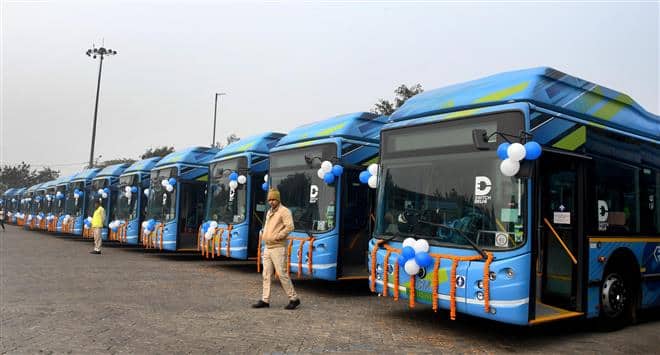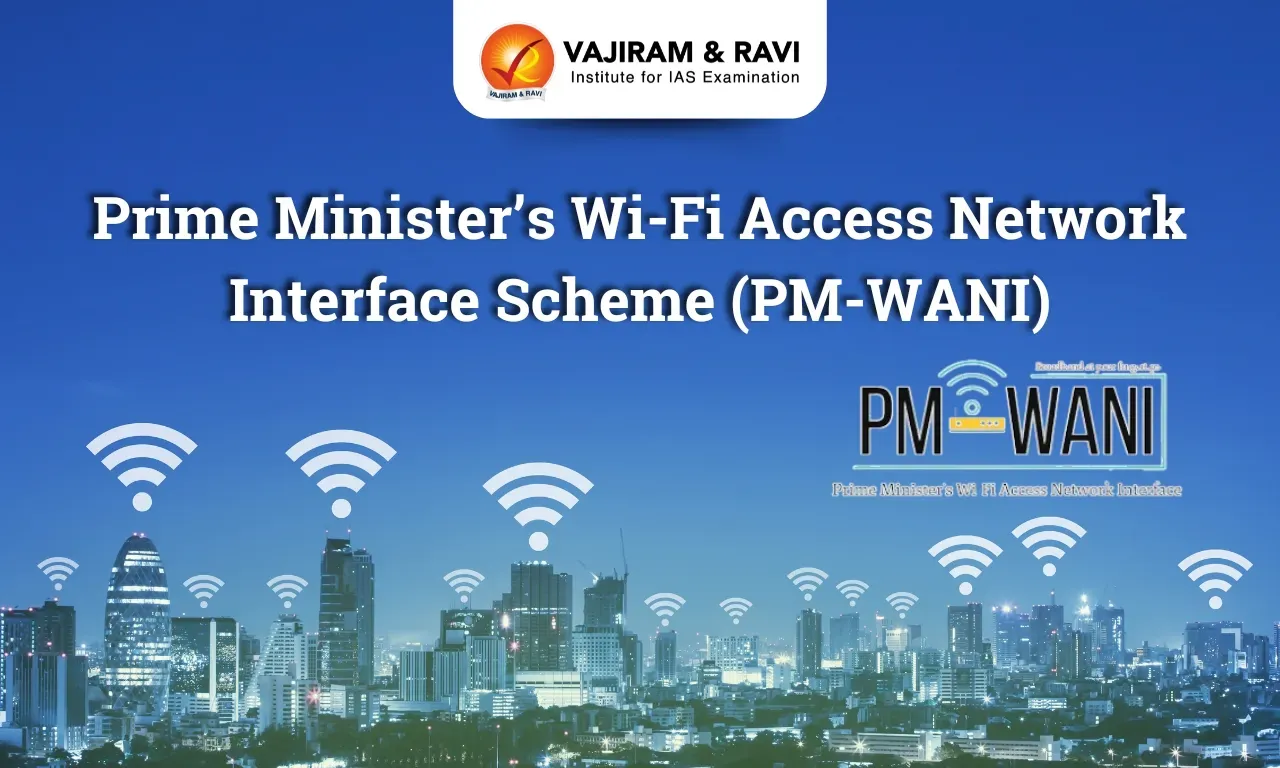About ‘PM-eBus Sewa’ Scheme
- Under PM-eBus Sewa Scheme, 10,000 e-buses will be deployed across cities in the country.
- Support for Operation:
- Under this scheme, city bus operations will be done on Public Private Partnership (PPP) model.
- This scheme will support bus operations for 10 years.
- States/Cities shall be responsible for running the bus services and making payments to the bus operators.
- The Central Government will support these bus operations by providing subsidy to the extent specified in the proposed scheme.
- Funding:
- It has been allocated a total funding of Rs 57,613 crore.
- Out of this financial provision, the central government will contribute Rs 20,000 crore, while the remaining portion will be covered by the state governments.
- Coverage: The scheme will cover cities with 3 lakhs and above population and priority will be given to cities not having organised bus services.
- There are two segments of the scheme: Augmenting the city bus services and Green Urban Mobility initiatives.
- Augmenting the city bus services:
- Under this, the e-buses will operate under the PPP model and the government will help develop associated infrastructure to provide support for development/upgradation of depot infrastructure
- It will also help cities create behind-the-meter power infrastructure for the e-buses.
- Green Urban Mobility initiatives:
- Bus rapid transport projects would be developed along with non-motorised infrastructure like bike sharing, bicycle lanes.
- Innovative projects like National Common Mobility Card, Intelligent Transit Management System, Multimodal Interchange facilities would also be developed.
Q1) What is the Public Private Partnership (PPP) model?
The Public-Private Partnership (PPP) model is a collaborative approach to project development and service delivery in which both public and private sector entities work together to achieve common goals. PPPs involve the sharing of resources, risks, responsibilities, and rewards between the government (or public sector) and private sector organizations. This model is commonly used to undertake and manage projects or services that require substantial investment, expertise, and efficient management.
Last updated on June, 2025
→ UPSC Notification 2025 was released on 22nd January 2025.
→ UPSC Prelims Result 2025 is out now for the CSE held on 25 May 2025.
→ UPSC Prelims Question Paper 2025 and Unofficial Prelims Answer Key 2025 are available now.
→ UPSC Calendar 2026 is released on 15th May, 2025.
→ The UPSC Vacancy 2025 were released 1129, out of which 979 were for UPSC CSE and remaining 150 are for UPSC IFoS.
→ UPSC Mains 2025 will be conducted on 22nd August 2025.
→ UPSC Prelims 2026 will be conducted on 24th May, 2026 & UPSC Mains 2026 will be conducted on 21st August 2026.
→ The UPSC Selection Process is of 3 stages-Prelims, Mains and Interview.
→ UPSC Result 2024 is released with latest UPSC Marksheet 2024. Check Now!
→ UPSC Toppers List 2024 is released now. Shakti Dubey is UPSC AIR 1 2024 Topper.
→ Also check Best IAS Coaching in Delhi
























